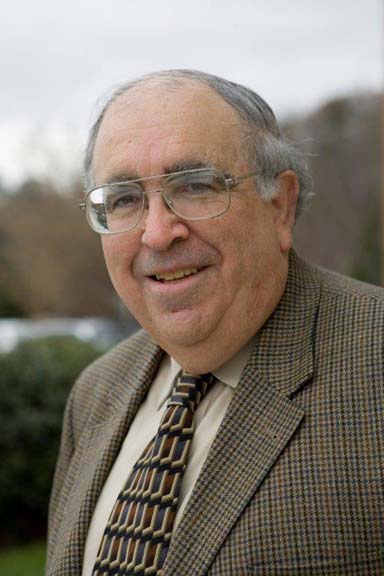The CH Foundation 2018 Lecture Series
Coming Up:
During the week of April 2-6, 2018, The Institute for the Study of Western Civilization
will be sponsoring a series of events commemorating "Shakespeare and his Legacy."
The Institute will host lectures by Texas Tech University faculty from a variety of
disciplines all relating to Shakespeare. As the capstone, on April 5th, the Institute
has the honor of presenting an address by Professor Paul Cantor of the University
of Virginia, entitled "William Shakespeare and the Roots of Western Civilization."
This lecture will take place in the Matador Room of the Student Union building at
6:00 p.m. on April 5th. A reception with food and drink will be held prior to the
lecture at 5:30 p.m. in the lounge room just beside the auditorium. Come enjoy refreshments
and stimulating conversation on a lovely balcony overlooking Texas Tech University,
and listen to the insights of one of the country's most distinguished Shakespearean
scholars.
These events are made possible by the generous support of The CH Foundation.
Shakespeare and His Legacy
Schedule of Events:
April 5, 2018

Featuring Paul Cantor, Clifton Waller Barrett Professor of English at the University of Virginia
"William Shakespeare and the Roots of Western Civilization"
Location: 6:00pm, Matador Room, Located in the Student Union Building
Reception with refreshments will begin at 5:30 prior to the lecture.
If Shakespeare's plays constitute some of the great monuments of Western civilization,
one reason is that they are deeply rooted in its grand traditions. Shakespeare's imagination
ranged widely in terms of both geography and history. His historical plays chronicle
the evolution of the British regime, from the chaos of feudal monarchy to the order
of a modern centralized kingship. In his Roman plays, Shakespeare goes back to the
ancient world to uncover the contribution of the classical republican tradition to
the modern world. As a figure of the Renaissance, Shakespeare was positioned to draw
on both ancient and modern traditions, and his plays can help us understand how the
confluence of those traditions helped create our world today.
Professor Cantor specializes in comparative literature, Renaissance, and Romanticism.
He has published extensively on Shakespeare and is well known for his writings on
popular culture.
This event is the featured lecture of the Institute's highly anticipated "Shakespeare
Week." In the days leading up to Dear's talk, several faculty members of Texas Tech
will address the main topic of his lecture with their classes in various departments.
"Shakespeare and his Legacy" Weeklong Lecture Series:Stacey Jocoy, TTU Associate Professor of Musicology
"To be Made a Ballad of: Songs and Dances on Shakespeare's Stage"
Tuesday, April 3, 2018, 2:00 - 3:20 p.m. - TTU School of Music, Room 209
Ballad tunes in Shakespeare's time were well-known amongst the populace and conveyed a host of thematic associations that aided and complicated the meanings of plays into which they were inserted. They were used to tell the news, especially scandals, and were often used as weapons of social defamation. Understanding this musical layering was the ballad maker's art, something Shakespeare knew well and used to good effect in his work. This discussion will consider pieces used in Hamlet, Macbeth, and several other plays to uncover the musical meanings that amused and enlightened the audiences of Elizabethan England.Bill Gelber, TTU Associate Professor, Department of Theatre and Dance
"Shakespeare the Director: Textual Clues to the Staging of Early Modern Drama"
April 5, 2018 from 11:00 a.m. - 12:20 p.m. - Lubbock Room in TTU Student Union
Originally, Shakespeare's company had, at the most, ten days of rehearsal for each new play. The position of director did not yet exist. With limited time and no overall "master of the stage," how was a work like Hamlet or King Lear successfully produced? Dr. Gelber will point out the ways in which an examination of Shakespeare's texts give clues as to what he had in mind for staging: how he directed through dialogue, and how his company would have translated what he wrote to the Globe stage.
Ali Duffy, TTU Associate Professor of Dance
"Dancing Poetry: Shakespeare's Influence on Iconic Choreographers of the 20th and 21st Centuries"
April 5, 2018 at 2:00 - 3:20 p.m. - TTU Creative Movement Studio, Room 108
William Shakespeare's influence on dance choreographers and artistic directors of the 20th and 21st centuries is unmistakable. This lecture will feature discussion on choreographers' staged interpretations of Romeo and Juliet, Othello, and the Love Sonnets.Matthew Hunter, TTU Assistant Professor of English
"Love's Forms: Romeo and Juliet and the Language of an Emotion"
Friday, April 6, 2018 from 12:00 - 12:50 p.m. - TLPDC Lab in the TTU Library, Room 153
This talk will consider the ways Shakespeare's celebrated tragedy offered its earliest audiences a repertoire of speech-acts for expressing and understanding the seemingly ineffable experience of being in love. Not just a story to be enjoyed, Professor Hunter will show how Romeo and Juliet was a script for audiences to follow.John Poch, TTU Professor, Department of English
"That Thereby Beauty's Rose Might Never Die: Shakespeare and the Contemporary Sonnet"
Friday, April 6, 2018 from 10:00 - 10:50 a.m. - English-Philosophy, Room 106
Dr. Poch will discuss the contemporary sonnet and its transmission from Shakespeare and earlier versions of the sonnet. We will look at a variety of sonnets in the way Helen Vendler might, seeing each of these as created by "a working poet—that is, as a master of aesthetic strategy". These poets aim for nothing less than creating poems that might be artfully important: now, in ten years, and perhaps even four hundred years later.
The Institute for the Study of Western Civilization
-
Address
Mailing Address: Box 42019 - The Institute for the Study of Western Civilization, Lubbock, TX 79409-2019 -
Phone
806.834.8289 -
Email
steve.balch@ttu.edu

